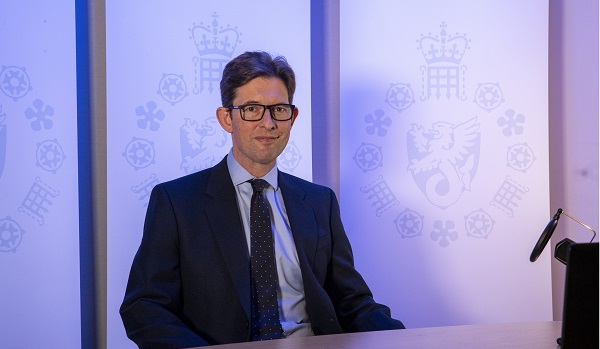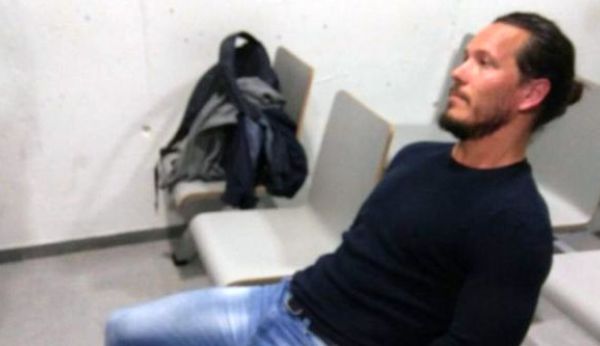Terrorists look for different targets as coronavirus cuts crowds, warns new head of MI5
Terrorists are hunting for fresh targets because there are fewer crowds amid the coronavirus pandemic, the new head of MI5 has warned.
Director-General Ken McCallum said the security service has been “rapidly adapting” how it works to keep the country safe during the outbreak as well as helping research efforts in combatting the virus and trying to protect work on the vaccine from potential interference.
Speaking to reporters on Wednesday for the first time since taking on the top role in April, he said: “I stepped into this role at the height of the Covid lockdown, and for MI5 just like everyone else, 2020 has been dominated by the pandemic.
“We’ve sought where we can to help on Covid itself – advising on the safe construction of Nightingale hospitals; repurposing research originally done on toxic chemicals to help understand how Covid in droplets might disperse in certain environments; offering our skills in data analytics and modelling; simply allowing medically-qualified MI5 officers to step away from their duties here and directly support our NHS.
“And, crucially, on the vaccine, we’ve been working to protect the integrity of UK research.
“Our larger task has been rapidly adapting how we perform our core role of keeping the UK safe.
“The big shifts in everyone’s lives – reduced travel, more online, and the rest – mean shifts in how our adversaries are operating.
“Fewer crowds mean terrorists look at different targets; online living means more opportunities for cyber hackers; and so on.
“Equally, 2020 has demanded shifts in how MI5 itself has to operate; you wouldn’t expect me to get into detail, but common sense will tell you that covert surveillance is not straightforward on near-empty streets.”
Mr McCallum, who is in his forties, became the youngest ever director-general when he took over from Sir Andrew Parker, who retired after leading the organisation since 2013.
He told how the country faces threats which are becoming “more diverse and in some ways more difficult to spot”, adding: “We face a nasty mix – terrorism isn’t going away, and state-backed hostile activity is on the rise.”
Tackling terrorism continues to be MI5’s largest mission, Mr McCallum said, with Islamist extremism remaining the biggest threat.
While the service is also still focusing on Northern Ireland-related terrorism – the area in which Mr McCallum first started his career – right-wing terrorism is a rising threat and since April MI5 has taken the lead on these investigations.
Mr McCallum said: “This threat is not, today, on the same scale as Islamist extremist terrorism. But it is growing.”
Of 27 late-stage terrorist attack plots in Great Britain disrupted by MI5 and counter-terror police since 2017, eight have been right-wing extremist, he added.
In a rare insight into the personal impact of life working for the security service, he opened up on how this can affect him, telling reporters that his stomach “lurches” when he receives a late-night phone call for fear it could be news of another “sickening” terror attack.
Threats from hostile states are also on the rise, he warned, saying the service this year was defending against threats to people, such as assassination attempts, threats to the economy, academic research, infrastructure and threats to democracy.
He said: “In the 2020s, one of the toughest challenges facing MI5 and indeed government is that the differing national security challenges presented by Russian, Chinese, Iranian and other actors are growing in severity and in complexity – while terrorist threats persist at scale.”
As part of plans to bring the security service into the 21st century, Mr McCallum said MI5 could start using social media to attract younger recruits from a more diverse range of backgrounds.
Artificial intelligence is also being considered as a way of helping sift through digital evidence for court cases, rapidly translate conversations and passages of text, as well as review hours of CCTV and covert camera footage.







